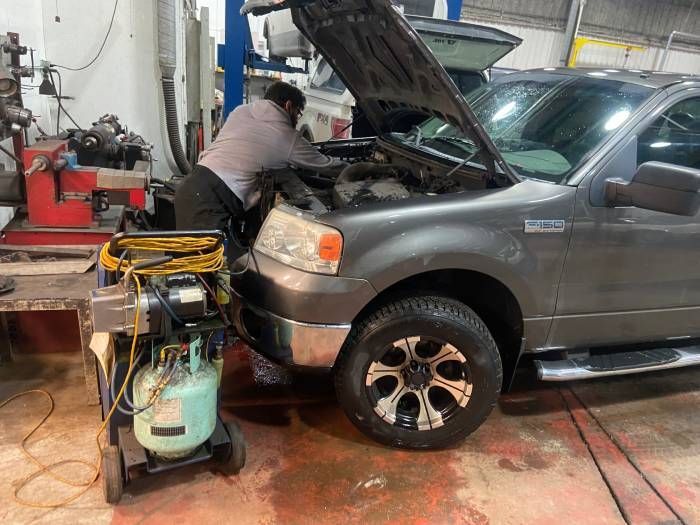Like a squirrel gathering nuts before the snow falls, you're preparing your vehicle for winter. You may consider winter tires an unnecessary expense, but they're much more than just an accessory. They provide better traction, braking, and handling in cold conditions - not just snow.
The secret lies in their special rubber compound, unique tread design, and deeper grooves. Stick around to unravel these three fascinating facts about winter tires, and understand why they're your best ally for safe winter driving.
Understanding Winter Tires
In order to fully understand winter tires, you've got to grasp the unique features that set them apart from their all-season counterparts.
Winter tires, or snow tires, are specifically designed to perform in cold, snowy, or icy conditions. They're made from a softer rubber compound that stays flexible even in freezing temperatures. This suppleness allows them to maintain better contact with the road, improving your vehicle's grip and handling.
Their tread patterns are also different, featuring larger gaps and more biting edges that help to dig into snow and ice, offering superior traction. Don't mistake them for being only beneficial in heavy snow; they're also more effective than all-season tires on cold, dry pavement.
Understanding these distinctions can guide you in making an informed decision on tire selection for the winter season.
The Science Behind Winter Tires
You've got to delve into the science behind winter tires to truly appreciate their superior performance in frosty conditions. They're designed with a special type of rubber that stays pliable even in extreme cold, unlike all-season tires which harden, reducing traction. This flexibility allows the tire to conform to the road's surface, increasing grip.
Furthermore, winter tires have deeper tread depths and unique tread patterns to handle snow and slush more efficiently. The deep grooves and sharp edges are designed to bite into snow and ice, providing stability and control. The wider gaps disperse slush and prevent snow build-up.
Lastly, they're equipped with countless tiny slits, called sipes, which provide extra biting edges for improved traction. This is the fascinating science that makes winter tires a lifesaver in cold weather.
Benefits of Using Winter Tires
Your car's performance can significantly improve with the use of winter tires, especially in icy and snowy conditions. These tires are specifically designed to provide superior traction, control, and braking capabilities. They're equipped with deeper treads and biting edges that claw into snow and ice, giving you a safer, more controlled ride.
Winter tires also perform better in cold temperatures compared to all-season tires. The rubber in winter tires remains flexible in extreme cold, ensuring better grip on the road. And don't forget the savings on potential repair costs from accidents that can happen due to poor road grip.
In short, investing in winter tires is a smart move for safety, performance, and financial reasons. It's a clear example of being penny wise, not pound foolish.
Selecting the Right Winter Tires
Choosing the right winter tires for your vehicle isn't as tough as you might think. Part of your decision should be based on the typical winter conditions you face. If you're dealing with icy roads, you'll want tires with a high number of sipes for better grip.
Next, here are three things to consider:
1. **Size**: Know your vehicle's tire size. It's usually indicated in your car's manual or on the tire itself.
2. **Tread Depth**: Look for deeper treads. They provide better traction in snow.
3. **Temperature Performance**: Ensure your tires perform well in low temperatures. Some tires harden in the cold which reduces traction.
Winter Tires Maintenance Tips
While it's crucial to select the right winter tires, it's equally important that you maintain them properly to ensure they perform optimally.
Regular inspection is key; look for any signs of damage, such as cuts or bulges in the sidewalls.
Check the tire pressure monthly, as it can drop due to cold weather.
Rotate your tires every 5,000 miles to ensure even wear.
When the tread depth gets to 4/32 inch, it's time to replace your tires.
Don't forget to clean your tires regularly to remove road salt, which can cause your tires to deteriorate faster.
Lastly, store your winter tires in a cool, dry place when not in use to prolong their lifespan.
There you have it! Plenty of facts about winter tires, if you are looking for a quote or some more information on winter tires in Calgary, click the book now button on our website or give us a call at 403-235-2912.












